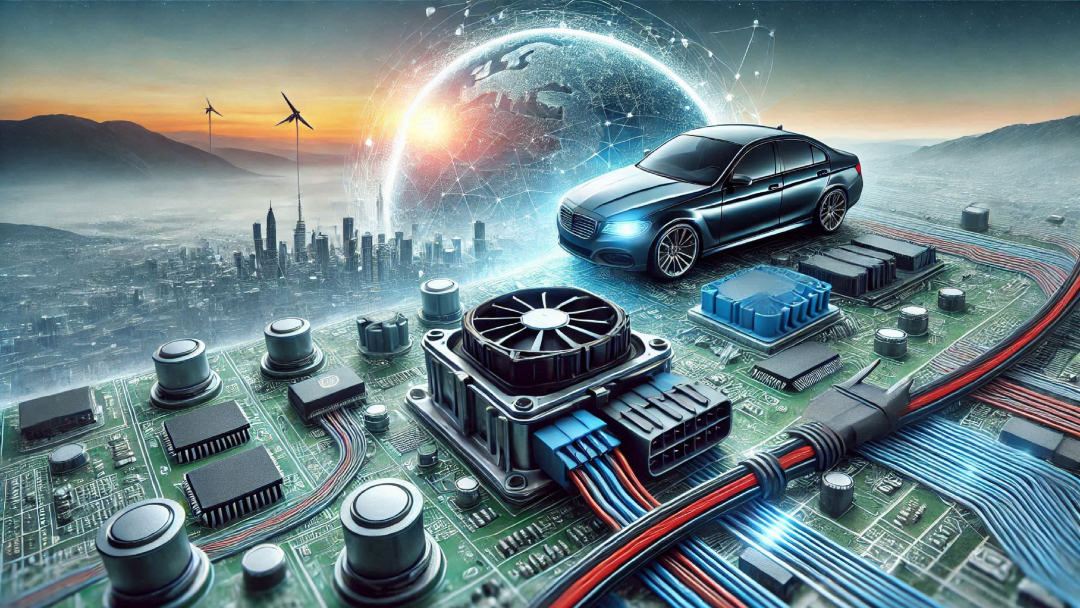Today, cars and modern vehicles have become quite complex due to the rapid development of technology. One of the most important components of this development is the Electronic Control Units (ECUs), which are devices used to manage and optimize various systems in a vehicle. In this article, we will explore what an ECU is, how it works, and its significant role in vehicles.
What is an ECU?
An Electronic Control Unit (ECU) is a programmable device that controls various electrical and electronic systems in a vehicle. ECUs interact with hardware components like sensors and actuators to ensure that systems such as the engine, brakes, safety features, and interior comfort functions operate efficiently. The ECU monitors these systems and makes adjustments as needed to ensure their proper functioning.
Types of ECUs
There are many types of ECUs in vehicles, each responsible for controlling a different system. Here are some of the most common types of ECUs:
- Engine Control Module (ECM): The engine control module manages and monitors the vehicle’s engine. It uses data from sensors to optimize the engine’s performance, reduce fuel consumption, and control emissions. The ECM adjusts parameters such as ignition timing, air-fuel mixture, and other engine parameters.
- Brake Control Module (BCM): This ECU controls the vehicle’s braking system, particularly safety systems like ABS (Anti-lock Braking System) and ESC (Electronic Stability Control).
- Interior Comfort and Lighting Control Unit: This ECU controls the comfort features inside the vehicle, including temperature control, climate control, and seat adjustments.
- Driver Assistance and Safety ECUs: Advanced driver assistance systems (e.g., lane-keeping, automatic parking, adaptive cruise control) and safety features (e.g., airbags, collision-prevention systems) are controlled by these ECUs.
- Vehicle Communication ECUs: Modern vehicles have ECUs responsible for communication between the vehicle and external systems, such as GPS or infotainment (entertainment and information) systems.
How Does an ECU Work?

ECUs work by receiving data from sensors within the vehicle. For example, the engine control module receives data from sensors that measure parameters such as engine temperature, air pressure, fuel levels, and other variables to optimize engine performance. The ECU then adjusts the system based on the received data.
For instance, the ECM uses information from sensors measuring air pressure, temperature, and oxygen levels to determine the proper air-fuel mixture for the engine. This helps ensure the engine runs efficiently and with minimal emissions.
Importance of ECUs
ECUs are critical for the efficient, safe, and environmentally-friendly operation of modern vehicles. Each ECU ensures that the systems it controls are functioning properly by making precise adjustments. Furthermore, ECUs communicate with each other to optimize the vehicle’s performance and enhance driving safety. For example, communication between the engine control unit (ECM) and the brake control unit (BCM) helps adjust engine power when the driver applies the brakes.
ECUs also simplify vehicle diagnostics. Each ECU can detect system malfunctions and generate error codes, making it easier for vehicle owners or mechanics to identify and fix issues.
The Future of ECUs
As technology progresses, ECUs are expected to become even more complex. Innovative technologies such as autonomous vehicles, electric vehicles, and advanced driver assistance systems will require ECUs to function more intricately. In these vehicles, multiple ECUs will need to work together seamlessly.
React with emojis!












